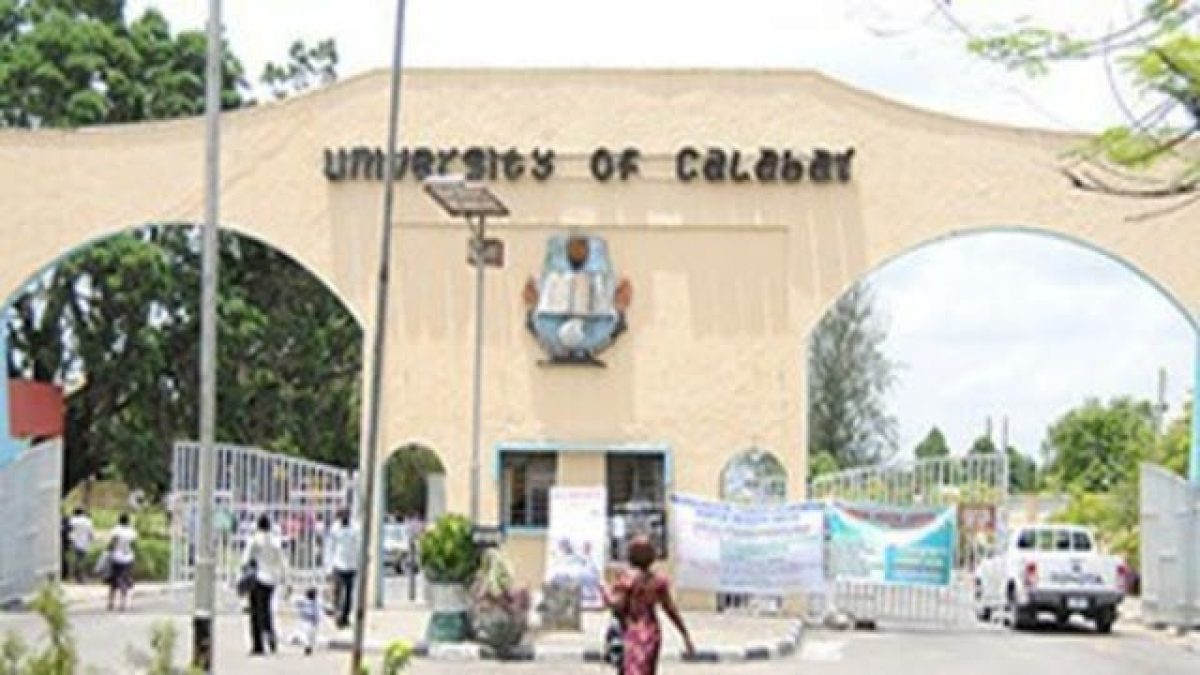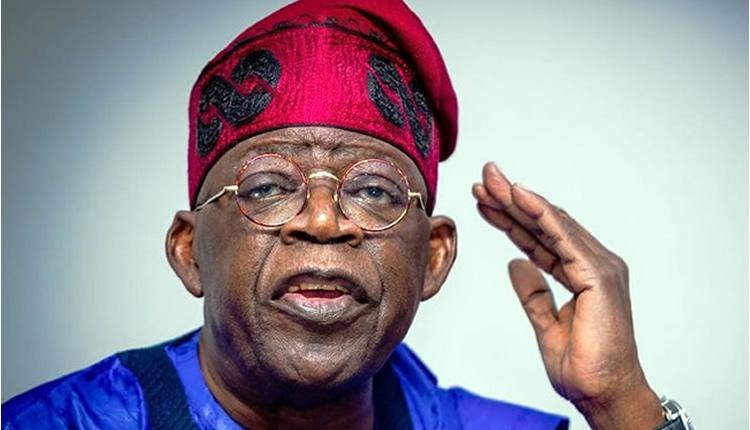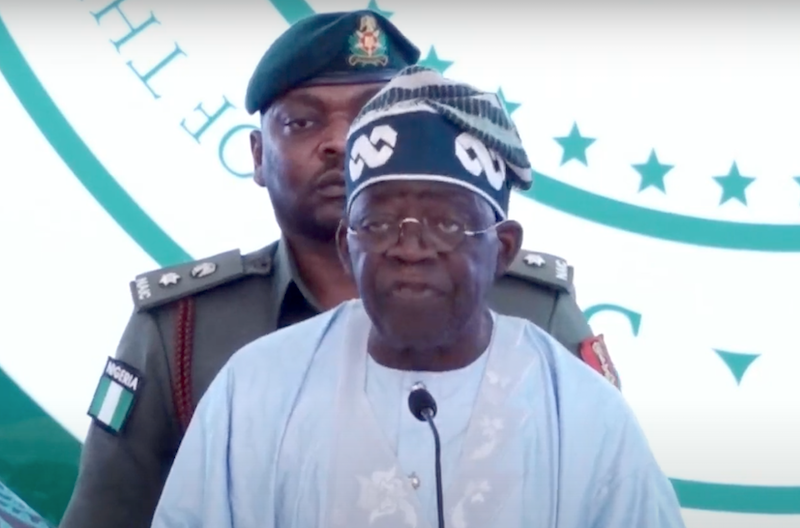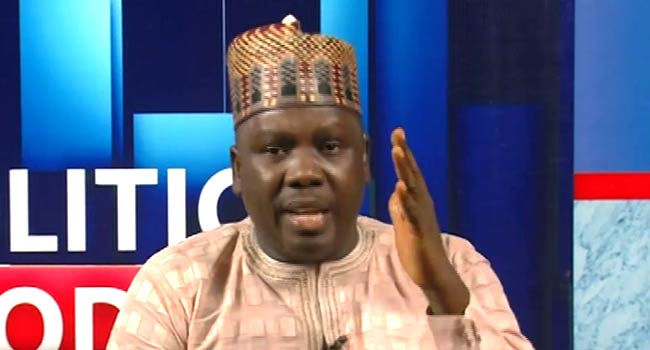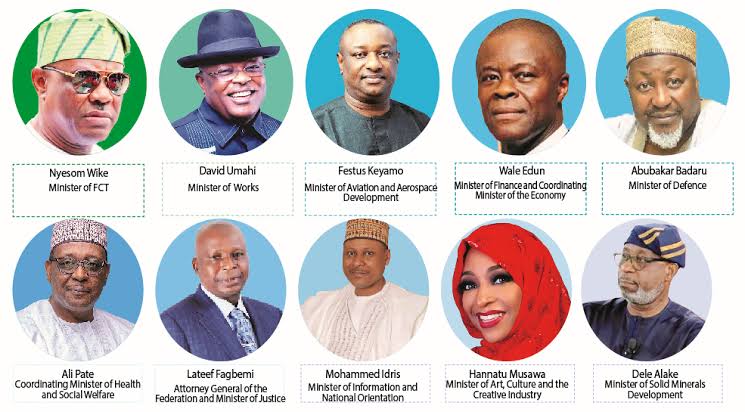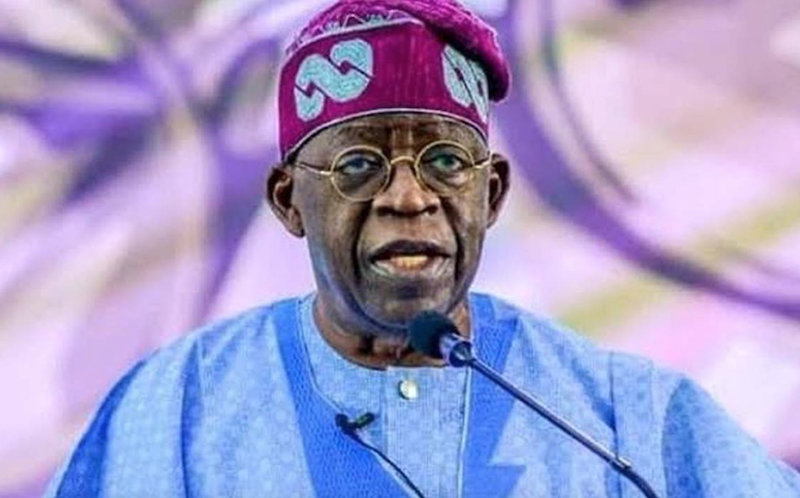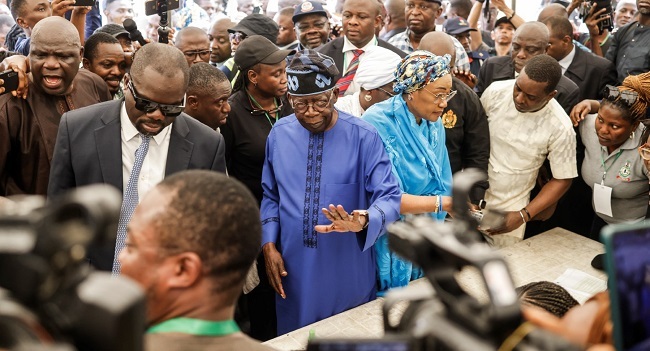The immediate past president of Gabon, Mr. Ali Bongo Ondimbo, has joined the new crop of video -posting toppled rulers. The luxurious expanse of his gold plated presidential mansion in Libreville has shrunk into a tiny sitting space surrounded by book shelves and inconsequential furniture. From here, he has posted an online video that casually urged the world to ‘make some noise’ to draw attention to his altered circumstances. He of course pretends to be unaware of what is happening around him as he admits he is confined to a room while the whereabouts of his wife and family are yet uncertain.
In the last couple of months, some of the footages of Mr. Ali Bongo’s public appearances before the coup showed an infirm man recovering from a debilitating stroke but still firmly in power as the c heir to a family political dynasty that has presided over Gabon for the last 55 years. The younger Bongo is the son of former President, Omar Bongo who often wore high wedge shoes covered by a baggy James Brown -style ‘bongo’ trousers to enhance his dimunitive proportions.
In spite of his personal infirmity and the obviously dysfunctional state of Gabon, Mr. Bongo went ahead to prepare for last weekend’s presidential election. He predictably ‘won’ the election. Opposition parties and groups throughout Gabon however dismissed the election as a fraudulent sham. Mr. Bongo clung to his victory and power nonetheless but was quickly toppled in a palace military coup, barely four days after. The election would have given him a third term in an office he assumed in 2009. He had tweaked the constitution to give himself room for a third presidential term.
Soon after the election of last weekend, it was predictable that his party, the Gabonese Democratic Party (PDG) which he inherited from his late father would win. With a time tested combination of rigging, violence and official intimidation, the perpetual victory of the ruling party was fairly much guaranteed. But opposition forces had of late increased in strength and been joined by masses of disenchanted youth and the urban poor. Gabon, a nation of a little over 2.4 million people has the fourth highest GDP per head in sub Saharan Africa but lately wracked by unemployment and poverty.
Mounting political opposition led to a belated coalition of 16 opposition parties into an electoral alliance that presented a joint candidate to challenge Mr. Bongo at last weekend’s presidential election. That did not alter what was a foregone outcome in what has become a typical African sit -tight tradition of democratic persistence disguised as succession.
In continuation of a recent fashion among French speaking African countries, Gabon has fallen to the new coup contagion. The military struck barely four days after the election results were announced. In a televised photo opportunity that has become typical of the recent Franco-phone coups, a group of soldiers appeared on Gabonese national television to announce that they had decided to topple the democratic order ‘in the name of the Gabonese people’.
Predictably, they declared last weekend’s presidential elections as flawed, dubious and therefore annulled. Typically, the soldiers have suspended the constitution and all institutions of the state. They have also placed the ousted president under house arrest while taking in one of his sons on a charge of ‘high treason.’ As it turns out, the cop leader and transitional president is Brice Clotaire Oligui Nguema, commander of the presidential guards and a cousin of Ali Bongo.
The coup in Gabon comes barely two months after that in Niger which is still the centre of feverish activity within ECOWAS and the African Union. The Gabon coup merely increases the tally of a series of coups that have ravaged Franco-phone Africa. In quick succession, Sudan, Guinea, Mali, Burkina Faso, Chad, Niger and now Gabon have all literally fallen onto the sword. Previous coups in the countries under review have been advanced and marketed as the result of a series of identical causes ranging from insecurity caused by Sahelian jihadist terrorists to economic adversity and political misrule by leaders enthroned by democratic elections.
The Gabonese coup has pointedly indicated an open political dimension. The Gabonese military has added its voice to that of African opposition parties who have of late decried abuses in recent African democratic elections. The Gabonese coup makers have been clear and direct in joining their voice to that of opposition parties and groups. They have openly rejected the conduct and outcome of last weekend’s presidential election in Gabon as well as the long misrule under the Bongo dynasty.
Without doubt, all the coup makers in French -speaking West and Central Africa have acquired their audacity as a result of one single factor: the reduction and even outright decline in French presence and influence in the region. The disengagement of France from its former African coloniesis is the direct result of a latter day revolt by African countries against certain extant exploitative colonial era arrangements between France and its former African colonies. This arrangement which has gained recent currency defines an essentially exploitative economic relationship between France and its former African colonies.
According to the outlines of the arrangement, France has retained tight control over the international financial transactions of these former colonies as well as curtailed the autonomy of their central banks. This has made these countries subject to French supervision and ultimate financial authority. Therefore, the political storm at the bottom of these recent coups seems to be a general revolt of former African French colonies against the last vestiges of a colonial relationship that has left these countries politically independent but financially and economically dependent on Paris.
The progressive French disengagement from Africa has also removed the safety switch of ready French intervention and stabilization forces which used to be the guarantee against instability and wider insecurity in these countries. In the absence of standby French intervention and stabilization forces, the frail armies of these countries have taken to an easier recourse to coups to assert some authority.
The frenzy of coups in West and Central Africa will destabilize the region strategically in the near term. It may end up destabilizing not just the region but also upsetting an already stressed global order. The decline of French influence and military presence in the region exposes Western oriented countries in West and Central Africa to direct jihadist terrorist threat. More dangerously, West and Central Africa are now under the direct threat of recent Russian ambition and influence through the conspicuous presence and activities of the Wagner Group of mercenaries in the region.
For Africa, the recent spate of coups challenges our leaders to increase confidence in democracy by ensuring that the processes and practice of democracy meet the hopes of the people. But this is not just an African challenge. For the free world, there is a clear and urgent task of restoring confidence in democracy by using diplomatic pressure to roll back the specter of coups in Central and West Africa.
For the West, there is an immediate issue of defending a vital sphere of western influence from the ills of authoritarian rule and potential Russian influence. The ultimate question for the West is not merely diplomacy as usual. It is also an overarching moral burden. When and where does democracy deserve and qualify to be defended by its global champions? There must be a clear indication that global democracy has a guarantor that will stoutly defend it whenever and wherever it is under threat. Democracy is clearly under threat in Africa today. How the West responds will determine whether the forces of authoritarianism championed by China and Russia will prevail in the contest for a new world order or beat a retreat.
From Abuja, Fanfare of Ministerial Bluster
The great national festival of the last fortnight was the swearing in and deployment of Tinubu’s mammoth ministerial assembly. The event was preceded by the comedy of curious confirmations. While the nominees were facing the Senate, no one knew what portfolios they were being processed for. So, a blindfolded Senate was interviewing a series of equally blindfolded ministerial nominees in a charade that served mostly an entertainment function for Nigerians who watched on television.
The poor senators were in no position to ask any pointed or specific questions. For the more familiar faces among the nominees, especially those who had served as state governors, it was the usual “Bow and Go!” comedy. No questions asked. No answers required. Just show up and proceed. For the less known ones, there were no challenging probes. Just show face and mutter something, Confirmed! Go onto the mountain and proclaim thyself: Distinguished Honourable Minister!
On first appearance, some of the more anonymous nominees seemed somewhat like sorry shy creatures. Imagine an innocuous fellow appearing in blindfold in front of the hallowed chambers of the Senate full of strangers with arrows and darts aimed at you. In the end, it was a typical Nigerian ‘mass promotion’ oral examination. Everybody passed including the gentleman prodigy who completed secondary school by age nine and an ingenious young lady who got appointed minister as a serving NYSC member!
After last Monday’s swearing in ceremony, however, something novel happened among the new ministers. As if by consensus, straight from the inauguration hall, most of the ministers addressed the media at their disposal on their mission. You would think the feverish campaigns of the 2023 elections were still raging. Promises and commitments came tumbling over one another.
Each new minister, as if on a prompt, addressed the media to market their priorities and advertise their unique selling points. It was like an advertising contest for self -promotion. It ended up a day of hyper bluster, mostly a fanfare of ministerial fantasies. Some of the ministers sounded more like politicians on the soap box all over again than as prospective departmental chief executives of government. Just a sample from the copious parade.
The new Minister of Humanitarian Affairs, Betta Edu, boasted that the federal government is poised to migrate 136 million Nigerians out of poverty in a short time. I guess she needed to be reminded that even the worst estimates of Nigeria’s poverty population has put the figure at no more than 130 million people. By this ministerial bluster, before she leaves office, there will be no more poor people in Nigeria. On the more immediate matter of equitable distribution of hunger palliatives among Nigerians, she even surpassed herself . She promised that government will deploy GPS for the distribution of bags of rice and packs of Indomie noodles. No reporter had the presence of mind to ask her the meaning of GPS!
Not to be outdone, the new Minister of Information who has just succeeded the ubiquitous Lai Mohammed promised that henceforth, government will stop lying to Nigerians. As it were, this minister will reinvent government publicity and communication. If government were to stop lying to us, what other business will be left for government?
Yet another Minister, Mr. Adebayo Adelabu, who is Minister for Power promised uninterrupted power to all Nigerian homes and businesses within the shortest time, precisely within one year. Many Nigerians recall that a similar promise was made immediately on assumption of office by President Obasanjo’s then new minister of power, the late Bola Ige who probably did not quite know the difference between an electric pole and a transformer. He promised uninterrupted power supply in six months in 1999! We are still waiting.
On his part, Mr. Abubakar Atiku Bagudu, the new Minister of Budget and National Economic Planning used the occasion to promise that he will “unlock the vast economic potentials of the nation” through his ministry. It is hard to decipher what a minister locked away in an office with a pile of statistics and Power point projections of government’s economic scenarios will have to do to ‘unlock’ the nation’s prosperity in the midst of an army of economists, central bankers and drivers economic drivers. There is information on good authority that Mr. Bagudu has a key to free some long missing resources!
Not one to be left out of a bluster festival, my friend, Mr. Dele Alake, the journalist turned Minister of Solid Minerals, used the opportunity to rationalize his new role. For a man who in less than 90 days of the Tinubu administration has rapidly exchanged choice roles with fancy titles so many times, it was pretty easy to market his new role. He predictably praised the wisdom of the president in recognizing his genius and universal versatility by sending him to help diversify the nation’s revenue and foreign exchange sources through the Solid Minerals sector as an alternative to the long standing dependence on hydrocarbons.
Similarly, the Minister for Steel Development, Mr. Shuaibu Audu, committed to the completion of the moribund Ajaokuta Steel Mill which was started by the Shagari administration since the 1980s. There is no indication of where Nigeria ranks among steel producing countries today and where we fit into the global steel market today.
Not to be sidelined by his colleagues, the new Minister of Foreign Affairs, Ambassador Yusuf Tigard promised to initiate what he called a foreign policy of 4-Ds: Development, Democracy, Demographics and Diaspora. He was wise enough to leave his policy initiative at the level of just those four key words. In the context of the mass emigration of Nigerians to Canada, United Kingdom, Rwanda and other places, the nation awaits the unfolding of this word based foreign policy against the background of the Buhari administration which uttered not a single word on foreign policy in all of eight years.
Predictably the most dramatic and boisterous of the lot was the new Minister of the FCT, former Rivers Governor Mr. Nyesom Wike. In his characteristic disruptive boisterousness, Wike promised to demolish as many buildings as possible in Abuja for as long as they violate planning approval in strict compliance with the original Abuja master plan. Of all the ministers, Wike has been the first to move into an ‘action’ phase. He has already demolished some fancy mansions and ordered their owners arrested. He has indicated a desire to complete the long abandoned Abuja light rail project. He has ordered all FCT contractors back to site and promised to pay indigenous land owners nearly a trillion Naira in compensation for a 4 kilometer new runway at the Abuja airport.
It is yet uncertain what King Wike will do about minor issues like urban sanitation, public health, the FCT public school system and the quality of the Abuja environment which is incrementally being degraded by basic urban challenges like traffic congestion and creeping overcrowding of the suburbs. It needs to occur to the bi partisan minister that Abuja has long ceased to be a construction site but is now a thriving urban city with all its implicit challenges.
There is nothing wrong with ministers stating a diversity of aims and aspirations. What is yet uncertain is whether in fact there is a unifying vision that runs through this cacophony of voices and fantasies. May be the mantra of the Tinubu administration of “Renewed Hope” after the hopelessness of the Buhari interregnum could provide a binding theme for this season of bluster.
There is something deserving of the excitement that has produced this burst of bluster among the new ministers. Some analysts have insisted that becoming a minister of the federal republic of Nigeria is an opportunity to ‘serve and to chop’. No doubt an opportunity that transforms mendicants of yesterday into islands of prosperity deserves the unguarded bluster and bragging that has featured among our new ministers. In a vastly religious society, to become a minister is seen by some as an earthly embrace of salvation, the arrival of some pilgrims at the place of their eternal quest. For some of them, it is an opportunity to serve and make a difference. In real terms then, the ministerial term is a race to separate those who came to serve from those who are here to ‘chop’.
Taken together, there is something refreshing about the season of ministerial bluster that is now graduating into a period of activity for the new men and women of power. The tenure of each of this motley assembly of ministers will be determined by how faithful they remain to some of the boasts and noises that heralded their emergence.
